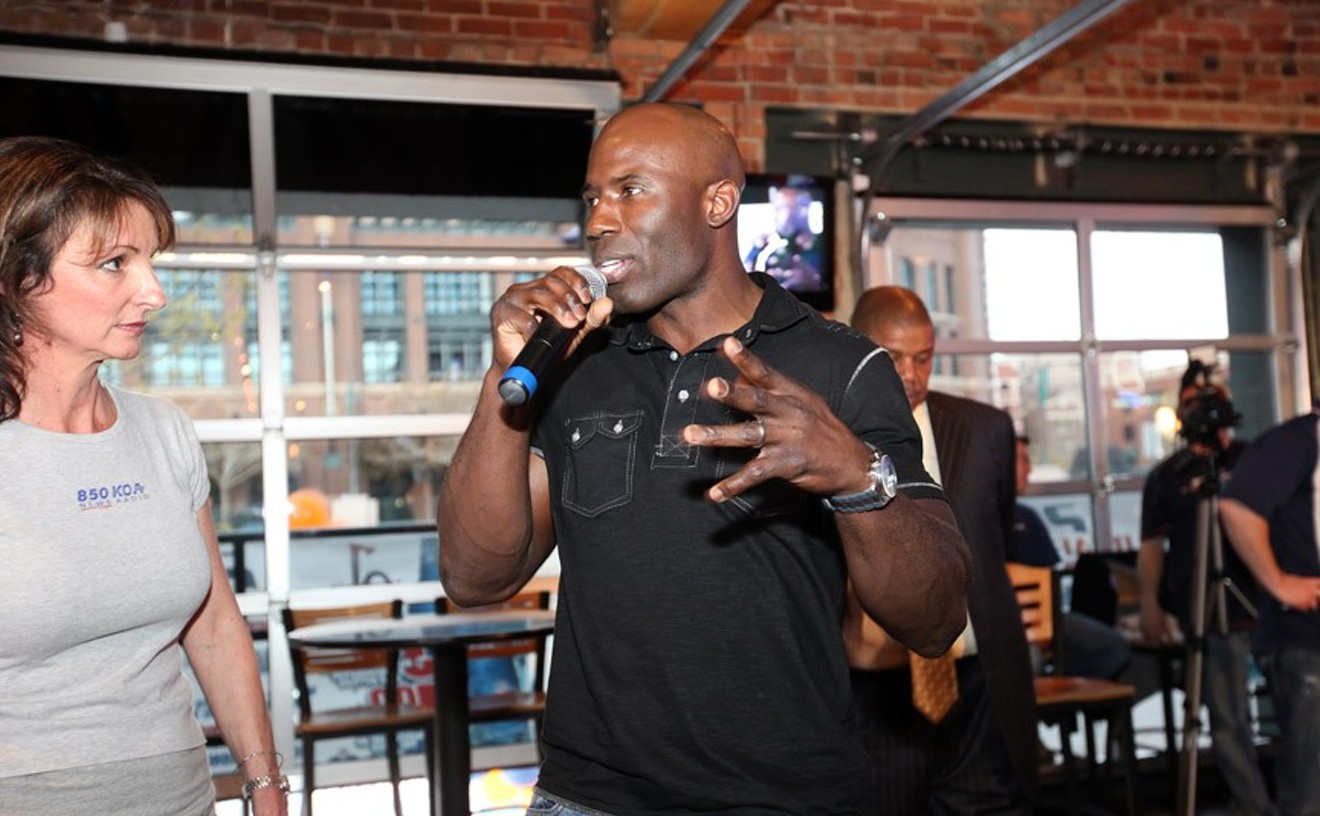A ballot measure that would allow Colorado to keep excess tax revenue to better fund higher education has drawn a notable, seemingly unlikely opponent: a regent of the state’s largest university system.
Heidi Ganahl, a Republican from Superior and an at-large member of the University of Colorado Board of Regents, is listed as a co-chair of the campaign to defeat Proposition CC, the "de-Brucing" measure that will appear on ballots this November.
Proposition CC would permanently eliminate the state’s revenue cap, part of a 1992 constitutional amendment known as the Taxpayer Bill of Rights, which requires the state to refund any tax revenue that exceeds a predetermined limit on how much its budget can grow each year. Instead, Prop CC would allow state budget writers to keep that excess revenue, which a law passed separately by Democratic legislators this year would split evenly between transportation, K-12 education and higher education.
Overall, Proposition CC could add up to $412 million next year and up to $623 million in 2021 to the state’s general fund, a third of which would be allocated to Colorado’s public colleges and universities. So why is one of the top elected officials in the state’s cash-strapped higher education system helping lead the charge against more funding?
Ganahl did not immediately return a request for comment. But in statements to the Denver Post on August 29, she echoed a common refrain from Proposition CC opponents, claiming that the measure amounts to a “blank check,” because “there isn’t any guarantee on how the money will be spent.”
That's an odd claim, given that nothing in the state’s $11 billion general fund is “guaranteed.” House Bill 1258, the companion law that requires that a third of Proposition CC revenue be spent on higher education, could indeed be amended by future legislatures — but so could every other statute that governs how the state allocates revenue. What's more, the language of Proposition CC specifies that any excess revenue collected will be used "to better fund…higher education."
"It's not just the companion legislation, it's the ballot language itself," says Scott Wasserman, president of Colorado's Bell Policy Center. "If Proposition CC passes, the people would be passing a state law saying that funding has to be spent in a certain way."
Nearly all public funding for higher education in Colorado comes through the general fund, which allocated a little over $1.1 billion to higher education in the 2018-’19 fiscal year. Tuition and fees accounted for most of the rest of the state’s $4.7 billion overall higher education budget.
The share of college costs covered by tuition has risen dramatically over the last two decades. As recently as 2000, students in Colorado only had to cover about a third of the cost of a college degree, with state funding making up 68 percent of the total. As public funding for higher education has lagged, that ratio has now flipped, with the state picking up just 33 percent of the tab while students shoulder an ever-rising share of costs through tuition and fees.
"This is an urgent problem if we're going to have the kind of workforce we want twenty, thirty years from now," says Wasserman. "In terms of both the rising costs of tuition, as well as the big attainment gap that we're seeing, we really need to be investing more in higher education."
While Ganahl says that her efforts to oppose Proposition CC are being undertaken as a private citizen, her opposition has significant implications. Without unanimous support from the Board of Regents, the university system itself will not take a position on the measure, as it has for other ballot questions in the past, CU president Mark Kennedy suggested in a statement to the Denver Post. Instead, Kennedy and other university officials will support the measure only on their own behalf.
[
{
"name": "Air - MediumRectangle - Inline Content - Mobile Display Size",
"component": "12017618",
"insertPoint": "2",
"requiredCountToDisplay": "2",
"watchElement": ".fdn-content-body",
"astAdList": [
{
"adType": "rectangle",
"displayTargets": "mobile"
}
]
},{
"name": "Editor Picks",
"component": "17242653",
"insertPoint": "4",
"requiredCountToDisplay": "1",
"watchElement": ".fdn-content-body",
"astAdList": [
{
"adType": "rectangle",
"displayTargets": "desktop|tablet"
},{
"adType": "rectangle",
"displayTargets": "desktop|tablet|mobile"
}
]
},{
"name": "Inline Links",
"component": "18838239",
"insertPoint": "8th",
"startingPoint": 8,
"requiredCountToDisplay": "7",
"maxInsertions": 25
},{
"name": "Air - MediumRectangle - Combo - Inline Content",
"component": "17261320",
"insertPoint": "8th",
"startingPoint": 8,
"requiredCountToDisplay": "7",
"maxInsertions": 25,
"watchElement": ".fdn-content-body",
"astAdList": [
{
"adType": "rectangle",
"displayTargets": "desktop|tablet"
},{
"adType": "rectangle",
"displayTargets": "desktop|tablet|mobile"
}
]
},{
"name": "Inline Links",
"component": "18838239",
"insertPoint": "8th",
"startingPoint": 12,
"requiredCountToDisplay": "11",
"maxInsertions": 25
},{
"name": "Air - Leaderboard Tower - Combo - Inline Content",
"component": "17261321",
"insertPoint": "8th",
"startingPoint": 12,
"requiredCountToDisplay": "11",
"maxInsertions": 25,
"watchElement": ".fdn-content-body",
"astAdList": [
{
"adType": "leaderboardInlineContent",
"displayTargets": "desktop|tablet"
},{
"adType": "tower",
"displayTargets": "mobile"
}
]
}
]












